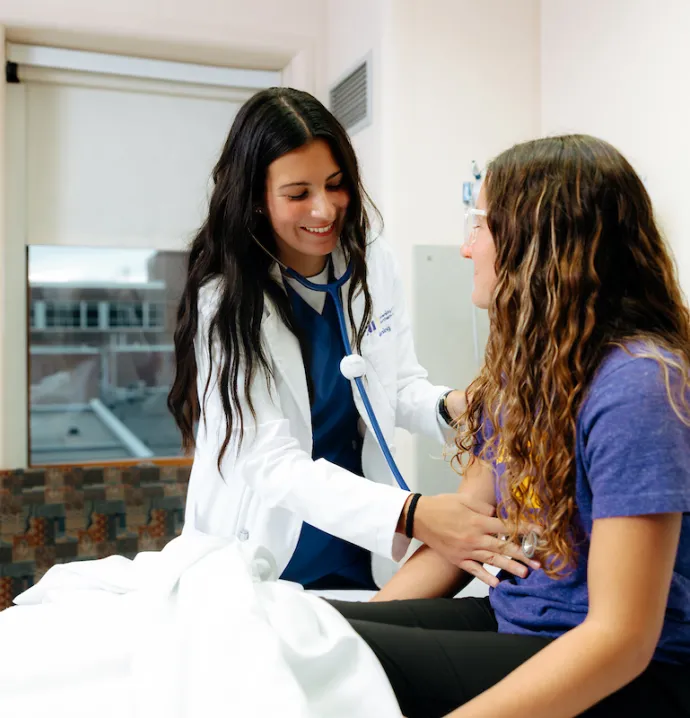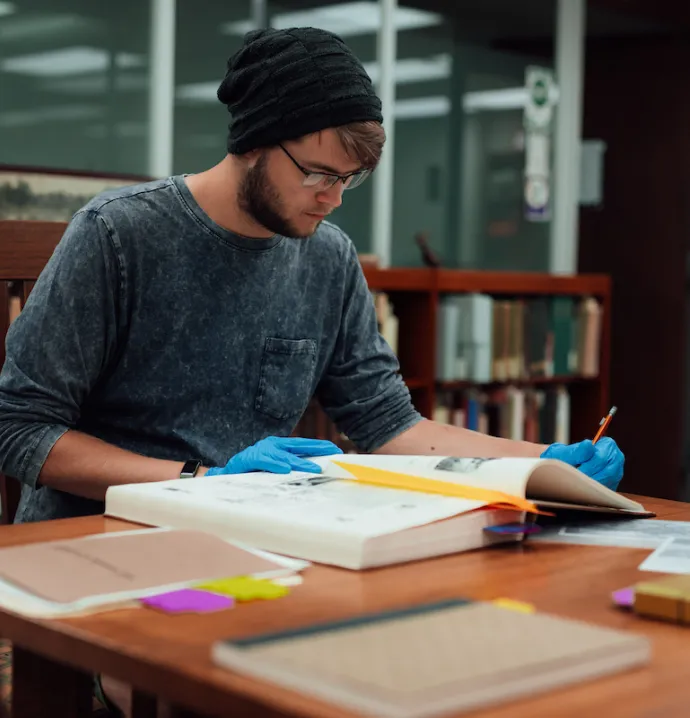UNI school psychologists changing systems and building communities
UNI school psychologists changing systems and building communities
Nicole Skaar is a detective.
Not really — she’s actually associate professor and coordinator for UNI’s School Psychology Program and a working school psychologist. In fact, she was recently recognized as the Iowa School Psychologists Association’s (ISPA) School Psychologist of the Year, and she is on the frontlines of an effort to bring more school psychologists into an education system in dire need of their services.
School psychologists are professionals who work with students, families and educators to help support students’ well-being, and UNI is currently the only college in the state accepting students in this field. Unlike school counselors, who work with the entire student population and often focus on things like career counseling, school psychologists work with students with a variety of needs to help them succeed academically — and their work requires an amount of research and sleuthing that can make it feel like investigative work.
“Our training has a big focus on assessment, and our practice tends to focus on data-based decision making,” said Skaar. “We’re like detectives a little bit — we get a problem in front of us, and it’s our job to figure out how to best put the pieces together to find the best solution to that problem.”
The problems school psychologists are faced with solving are as diverse as the students they serve, but it all boils down to supporting student success.
“We work with the kids with the most need,” said Skaar. “Students who have intense behavioral needs that go beyond what a school counselor’s training has taught them; students with intense academic needs, learning disabilities, and students with mental health difficulties that are currently impacting their learning. We make sure we’re supporting all students in the way they need to be supported.”
Unfortunately, supporting students can be difficult when data is pointing to an increased need for a very specific type of support — and a lack of people qualified to provide that support.
An urgent need
According to the National Alliance on Mental Illness (NAMI), 20% of adolescents aged 13-18 live with a mental health condition. And in a study by the U.S. Department of Health & Human Services, 29% of Iowa high school students reported experiencing depression symptoms (feeling sad or hopeless every day for at least two weeks). This data alone is alarming, but especially when considered alongside the impact on student success — NAMI reports that 50% of high school students with a mental illness drop out of school.
“Anxiety and depression are certainly on the rise in the adolescent population. I hear on a regular basis from principals, superintendents and teachers that this is where they are struggling,” said Skaar. “We need to get students support and help.”
Often, data also points to systems of support that impact each student at different levels and in varying ways. And for Skaar, who specializes in school-based mental health, this meant developing a system for addressing the increasing issue of mental illness in students. Not only is she bringing the latest in mental health literature into her classes at UNI, but as a school psychologist at Belle Plaine Community Schools, she’s helped develop a mental health team to change the systems impacting these students.
“We have a mental health team who comes together on a monthly basis and talks about the kids who are struggling to make sure that we match those students with necessary supports; trying to change those systems to ensure those kids get the support they need,” said Skaar. “The research supports using multi-tiered systems of support as a framework to match resources to student needs, and we’re starting to get to the place where we’re using that framework to impact mental health, not just academics.”
Of course, one group is not enough to address the growing need for mental health support in schools throughout the state. That’s why Skaar is working to develop even more new initiatives. In addition to a three-year research project with Great Prairie AEA and North Mahaska schools to develop a model for delivery of school-based mental health services in rural schools, Skaar and her colleagues in UNI’s school psychology program have recently partnered with The Green Hills AEA to help recruit and train new mental health professionals, including school psychologists, in rural Iowa.
Skaar also advocates for the field of school psychology on a larger scale. Skaar is the president of the Iowa School Psychologist Association (ISPA), has met with leaders from the Department of Education and Area Education Agencies, and is helping plan a Day on the Hill — all in an effort to promote the field.
“We have some things going on that should start to elevate our role. We are starting to have those conversations at that level of influence and authority,” said Skaar. “If we can start to have those conversations with important stakeholders, hopefully we can start to make some changes.”
Filling a gap
With her commitment to change, it’s no wonder Skaar was named Iowa School Psychologist of the Year. Though she serves as president for the organization, she had no idea she was getting the award.
“When you do this work, you don’t do it for the awards. And so I was very shocked and definitely very thankful and appreciative of the people who thought about me for the award,” she said. “I am passionate about making sure, in Iowa, that the field of school psychology gets elevated, and that’s one of the things [the student who nominated me] talked about.”
Skaar is passionate about elevating school psychology because of another significant need data points to — the need for more school psychologists in the state. The National Association of School Psychologists’ recommended ratio for school psychologists is one per 700 students; in Iowa, there is one per every 1,400 students.
“We have a shortage of school psychologists in the state of Iowa, which means we can’t practice at our optimal level,” said Skaar. “We are not using a lot of the skills that we could be using.”
While this has troubling implications for the school-age population and school psychologists alike, it presents an opportunity for aspiring school psychologists to help fill the gap. There are plenty of available job opportunities in the field — UNI’s school psychology program has a 100% job placement rate, and even that is not enough to fill the need. And as the only school in the state that is accepting students into a school psychology program, UNI is the place to be for students who want to practice school psychology in Iowa.
But jobs in school psychology are available nationwide — the U.S. Bureau of Labor Statistics predicts that employment in the field will grow by 20% between 2014 and 2024. And though UNI’s program is unique to the state, it also stands out among other school psychology programs in the Midwest.
“The one thing that we hear from our students the most is that our practicum experiences are the best, because we put our students in schools immediately,” said Skaar. “Their first semester here, they have a practicum and they have field-based experiences every year until they graduate with us. It is unlike other programs in the Midwest.”
Another unique aspect is that all of the faculty in the program are, like Skaar, currently licensed or have years of work experience. This leads to classes that are relevant to the latest trends in the industry, and an environment based on mutual support and professional development.
“I think it definitely benefits my teaching and my students’ learning that we can talk through tough cases together,” said Skaar. “And I’m not doing any of this alone. You have amazing people who you work with who help to lead this charge. We’re all very supportive of one another and we’re helping all our students be successful.”
Between her work at Belle Plaine, her involvement with ISPA and her work to educate future generations of school psychologists at UNI, Skaar is certainly doing her part for today’s kids. Like a detective putting clues together and building a case, Skaar is helping to put the pieces of a supportive community in place.




